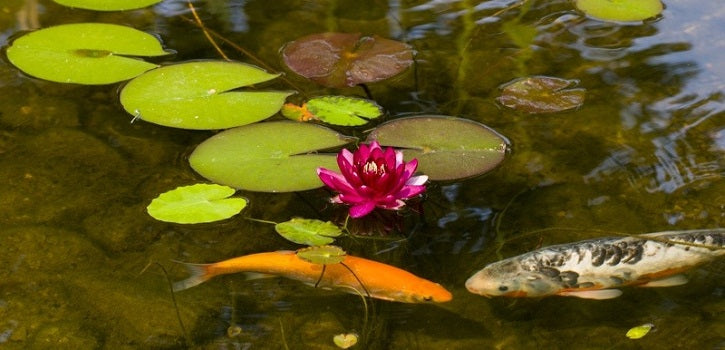- Eliminate toxins, considerably improving the quality of the water; this increases the health of the fish and speeds up their development.
- Organically clean the pond of murk and natural debris such as leaves and bird droppings.
- Add carbonates that make the pond a better environment for the fish.
- Reduce hydrogen sulfide, nitrites, and ammonia, all of which harm the fish.
- Often increase the efficiency of your pond filter.

Should You Add Beneficial Bacteria to Your Pond?
‘Bacteria’ is a word that usually causes alarm. But not when it comes to fish ponds. Beneficial water bacteria are microorganisms present in all rivers and natural bodies of water, and they break down muck and organic waste and keep the water healthy for the fish. Without them fish life cannot exist. Ponds and water gardens develop bacteria naturally, like all bodies of water. But since many ponds are made with non-natural materials and chlorine-rich tap water, they tend to have fewer beneficial bacteria than your average unpolluted lake. In other words, if you don’t add good bacteria to your pond manually, your fish will not have the benefit of developing in a healthy environment. A pond devoid of good bacteria will smell bad, look dirty, and in the long time, cause the death of the fish. The Benefits of Bacteria For Your Pond